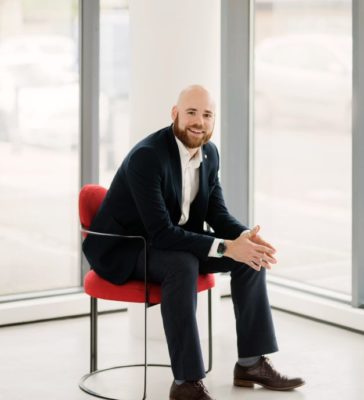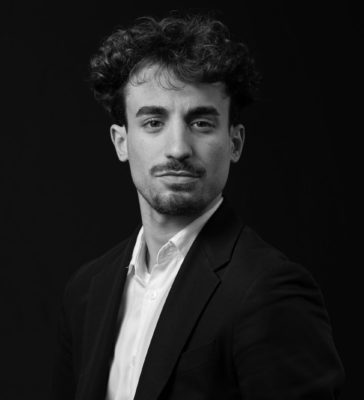
Adam Jones
What skills or attributes did you gain from your Humanities degree at Exeter?
A few key things. The ability to prioritise work, the ability to present in front of a group and also to deliver high quality written information. I learnt how to research and put together an argument and also the ability to work with others towards a common goal.
How have those skills been useful to you in your career so far? Can you give an example of this?
In technology, many of these skills are useful, especially the combination of research, debate and teamwork. Technology is by its very nature a problem solving discipline to the ability to interrogate information, share ideas, work together on solutions and also present your case and opinion is vital. I’ve used this combination a number of times since graduating on a range of projects and pieces of work for clients. Everything from designing a digital journey for a bank through to building a software business has this key set of skills at the heart of it.
How did your department encourage you to develop a range of skills or your employability prospects?
I think the main input from the department was around recognising the fact that degrees are very flexible, and that we could move on into lots of different disciplines from our core degree. This was done by sharing career stories from others who had come through humanities degrees into other professions, and also presenting the opportunities around graduate placements etc.
What learning tools did you pick up from your course that you have been able to employ in the workplace?
The ability to review large data sets and distil this into actionable insight was a key part of my degree (my dissertation was a research study of the landscape that makes up dev so there was a huge amount of data). Also the ability to take long form, disparate information and condense and consolidate this into short, actionable reports and recommendations.
Do you feel that your degree has prepared you to be adaptable to changing demands in the workplace?
Broadly speaking yes. I think I am a much more rounded person as a result of my degree and that lots of the skills I gained are very relevant to me today, and will continue to be so. The world of work is constantly changing and evolving, but I feel well equipped to deal with this.
What have been the most important stages of your career so far?
2010 – moving to work for a technology firm for the first time
2012-2017 – management consultancy focused on technology for financial services firms. A huge amount of exposure to different businesses and the way they operate. C. 30 clients over 5 years was a great learning experience.
2017 – present – CTO and MD of Technology at Redington. I am building a software business within an investment consultancy, and we are taking a product (ADA) to market. Amazing fun!
Where a hard skill (e.g. specialist software use or technical knowledge of a trade) was required in your job, were you supported by your employer to upskill or were you given space to upskill in your own time?
Both of these. I think employers (certainly my current and previous) recognise the need for continued on the job training. I also think that specific technical skills are rarely a barrier.
Do you have any tips or advice to pass onto future students?
Don’t worry about having the perfect career planned out. Even if you do, it probably wont work out that way. Instead make the most of the opportunities you have, build your self-confidence, and remember your value. Don’t be afraid to jump in at the deep end in a new role, and learn as you go along. We are all doing this to some degree. And most importantly, have fun and enjoy the journey. You only get to go on it once!

